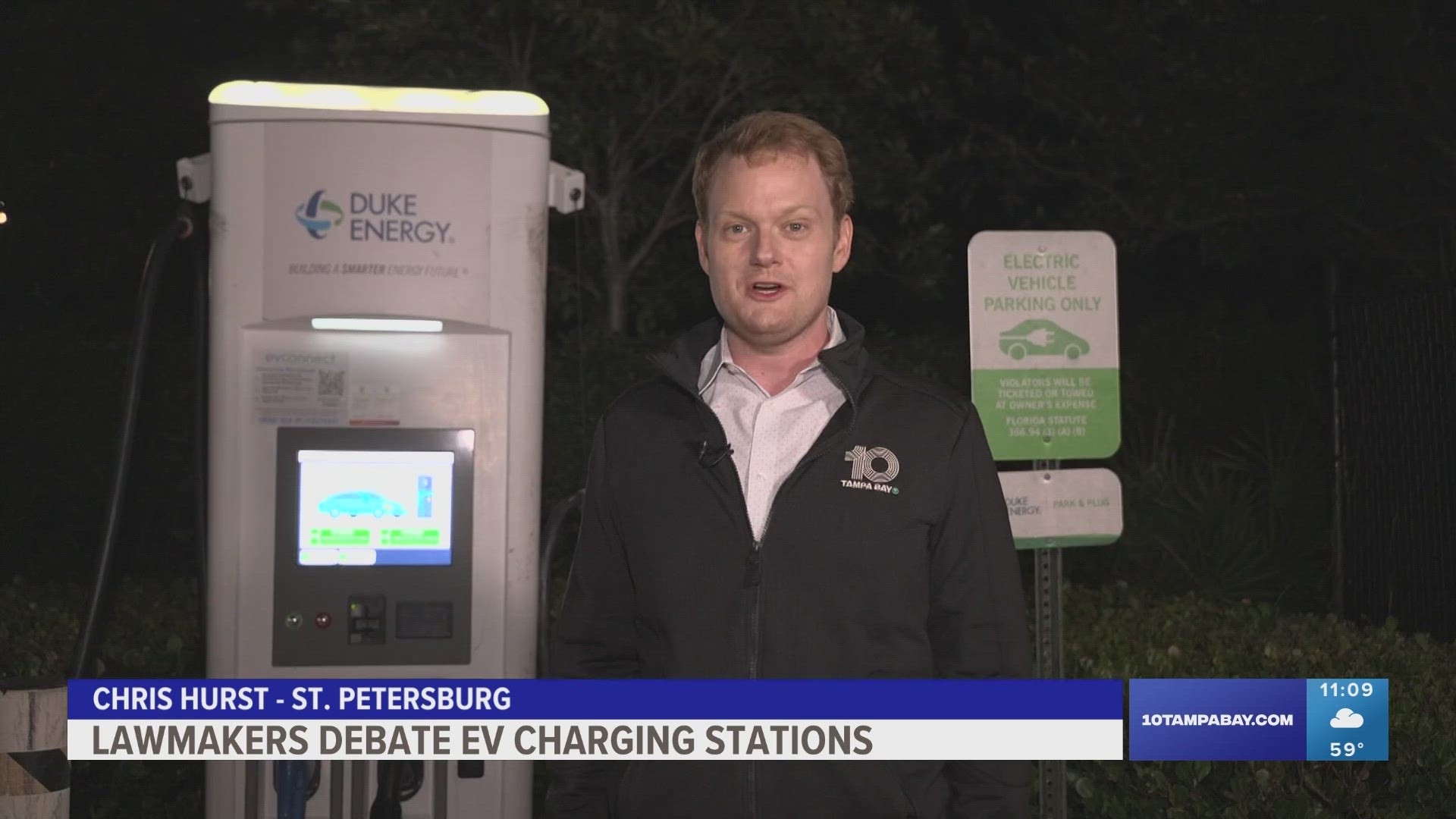ST. PETERSBURG, Fla. — Two bills working their way through the Florida House and Senate could pump the brakes on electric vehicle charging stations and ban the ability for cities and counties to institute regulations of their own.
Senate Bill 1084 and House Bill 1071 are both massive bills, each about 80 pages. They make many changes to the state's agriculture laws, including a provision to ban fake meat like impossible burgers. However, the first item in the pending legislation bans local counties and cities from telling developers how many electric vehicle charging stations there must be. It's part of a larger trend by Florida lawmakers to preempt local control.
Both the House and Senate have been debating who should control the buildout of EV charging infrastructure. Several cities in Florida, including Largo, have ordinances in place that prescribe how many EV spaces must be made for new parking lots, thinking developers might not do it on their own.
Power Design in St. Petersburg is one of the largest installers of EV charging stations in the country. Energy manager Michael Kuhn says installing them early saves a lot more money than having to do it later when more tenants demand it.
"Adding a charging unit to a 350-unit building or a 600-unit hotel gets really complicated,” Kuhn says. “I think having a base level is definitely a smart idea. EV adoption is not slowing down and it's not going anywhere.”
So then the real question may be, just who gets to decide what the regulations might be?
“When we have a patchwork in different counties that actually affects whether we can grow this market or stifle it through regulation,” says Rep. Danny Alvarez, R-Hillsborough. “[There will be] one set of rules and that's going to be under [Florida Department of Agriculture and Consumer Services.]"
Even if localities can't mandate spaces, the newly adopted Florida building code requires at least two “EV Ready” spaces for every new parking lot with more than 25 spaces. Both versions of the legislation will be heard by the House and Senate Appropriations Committees later this week.

